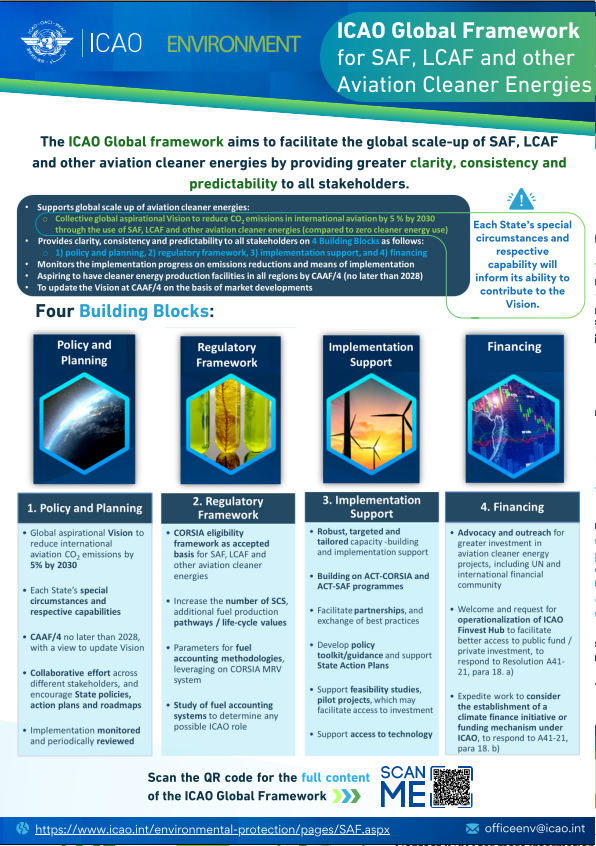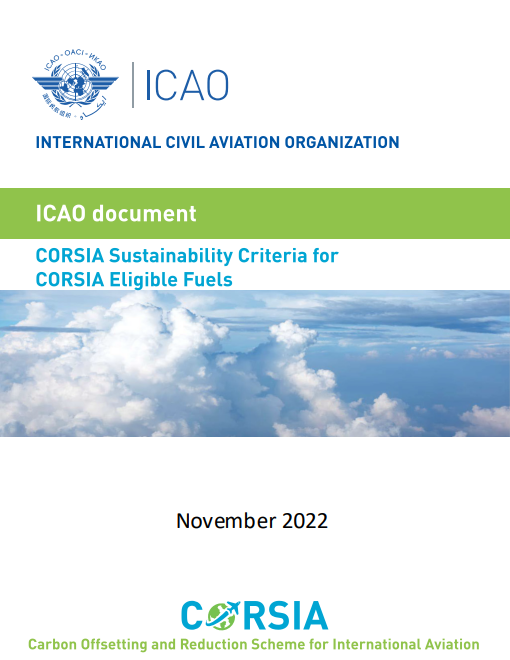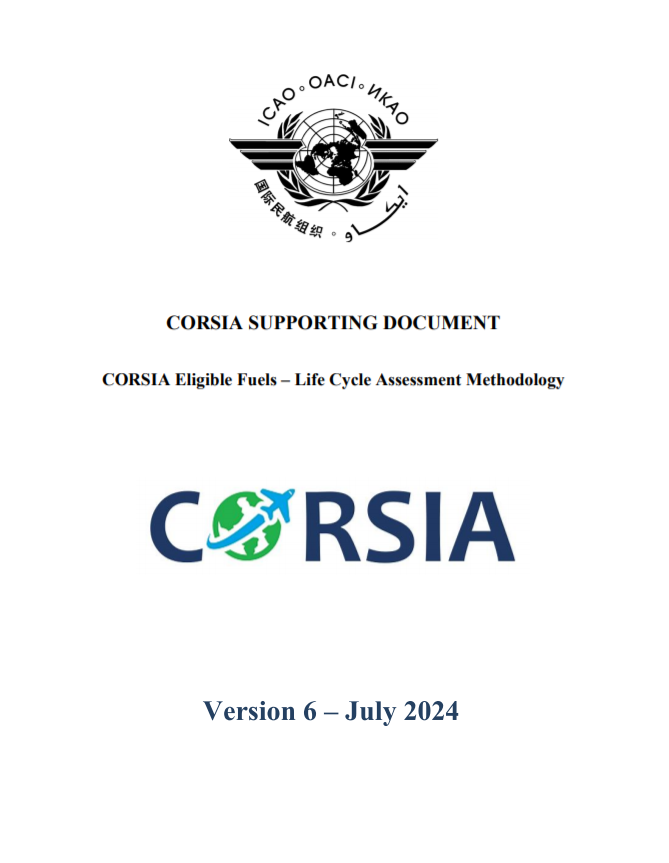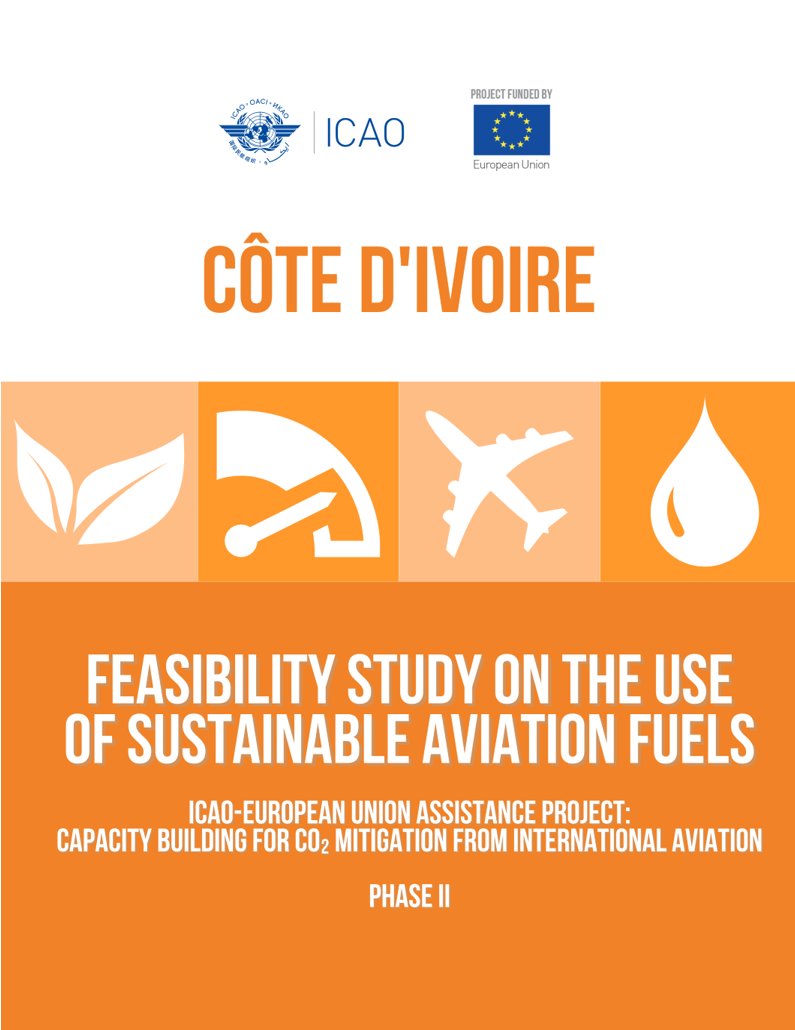Sustainable Aviation Fuels (SAF)
Sustainable aviation fuels (SAF) are defined as renewable or waste-derived aviation fuels that meets sustainability criteria1. Technical analysis done at ICAO shows that SAF has the greatest potential to reduce CO2 emissions from International Aviation.
ICAO is working to facilitate SAF development and deployment through the four building blocks of the ICAO Global Framework for SAF, LCAF and other Aviation Cleaner Energies:
1) Policy and Planning - SAF policies and goals
The ICAO Global Framework for Sustainable Aviation Fuels (SAF), Lower Carbon Aviation Fuels (LCAF) and other Aviation Cleaner Energies includes a collective global aspirational Vision to reduce CO2 emissions in international aviation by 5 per cent by 2030, compared to zero cleaner energy use. The framework, agreed at the Third ICAO Conference on Aviation and Alternative Fuels, is built across four building blocks: policy and planning;
regulatory frameworks; implementation support; and financing. These building blocks are interconnected
and need to advance and work together to achieve their intended purpose |
Long-term global aspirational goal (LTAG)The 41st ICAO Assembly adopted a long-term global aspirational goal (LTAG) for international aviation of net-zero carbon emissions by 2050 in support of the UNFCCC Paris Agreement's temperature goal. This historic agreement reinforces the leadership of ICAO on issues relating to international aviation and climate change. The adopted Resolution A41-21 is available here. The LTAG report shows that SAF has the greatest potential to reduce CO2 emissions from International Aviation. The LTAG and fuels website details the fuels-related information contained in the LTAG analysis. | |
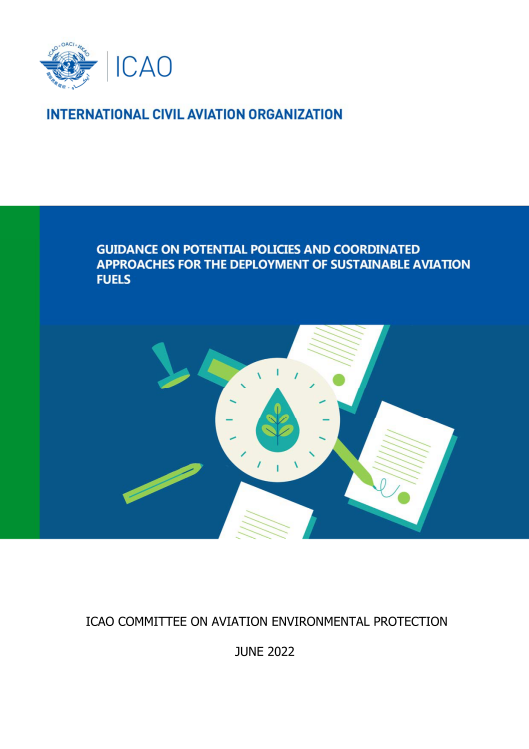 | This guidance summarizes potential policies and coordinated approaches for the deployment of SAF, completing a toolbox of guidance material for use by ICAO Member States together with the ICAO SAF Rules of Thumb. |
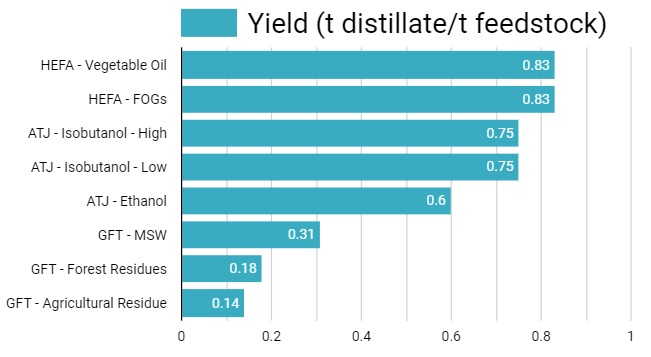 | SAF rules of thumb - what does it take to produce SAF? The "SAF Rules of Thumb" can be utilized to support policy development. They provide order of magnitude estimations related to SAF costs, investment needs and production potential. These "SAF rules of thumb" complete a toolbox of guidance material for use by ICAO Member States together with the "Guidance on potential policies and coordinated approaches for the deployment of SAF" |
SAF Trends and Short-term Projections - The possible contribution of SAF to the ICAO environmental goals is also being assessed by CAEP as part of the ICAO Global Environmental Trends and SAF short-term projections.
2) Regulatory framework - Globally-accepted environmental Standards for SAF
CORSIA includes methodologies that allow aircraft operators to reduce its offsetting requirements through the use of SAF and Lower Carbon Aviation Fuels (LCAF). These include globally-accepted sustainability criteria and life cycle methodologies. Specific details on how SAF is considered under CORSIA are provided in the ICAO Environmental Report 2019, Chapter 6 - An Overview of CORSIA Eligible Fuels (CEF). Related documents are provided in the CORSIA eligible fuels website. information on fuel batches and economic operators that are certified under CORSIA is provided on the CORSIA certified fuels website. | ||
ACT-SAF - ICAO Assistance, Capacity-building and Training for Sustainable Aviation Fuels The ICAO ACT-SAF Programme is supporting States to develop their full potential in SAF, through specific training activities, development of feasibility studies, and other implementation support initiatives. The ICAO ACT-SAF Series of events is providing comprehensive training to ACT-SAF Partners on an array of important SAF-related topics, ranging from sustainability, to policy, economics/financing certification and logistics. All the presentations are available for download; the trainings can be visualized on ICAO.TV and YouTube. | |
| ICAO is periodically reviewing the progress on SAF development and deployment through a Stocktaking Process, including the organization of regular seminars. Information gathered on the Stocktaking is included in the "SAF tracking tools" being maintained as part of the ICAO Global Framework for Aviation and Alternative Fuels (GFAAF) . | |
As part of the ICAO-UNDP-GEF assistance project "Transforming the Global Aviation Sector: Emissions Reductions from International Aviation", a "Sustainable Aviation Fuels Guide" was developed to inform ICAO Member States on how sustainable aviation fuels can be deployed to reduce CO2 emissions from international aviation activities. The guide describes fuel production pathways, usage constraints, environmental and other benefits, and policy perspectives on the use and development of SAF. | |
SAF technical references | Several other references on SAF are being compiled by ICAO and provided to the general public. More information can be found in the "other resouces" webpage. |
